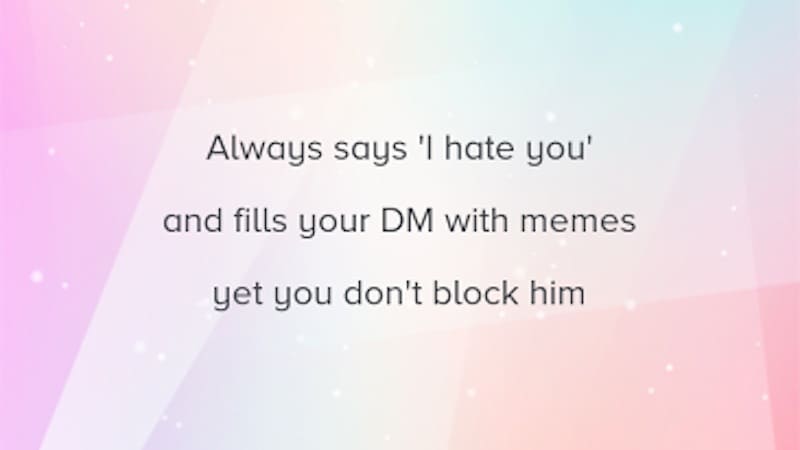- Home
- Apps
- Apps Features
- HaikuJAM Wants to Make a Business Out of Crowdsourcing Poetry Over the Internet
HaikuJAM Wants to Make a Business Out of Crowdsourcing Poetry Over the Internet

You write a single line and send it. Someone else - you don't know who - will write another, and this will be repeated, until your poem has been written, a collaboration between strangers which delivers unexpected results time and again. That's the idea behind HaikuJAM, which started as a stress reliever for the founder Dhru Karwa, who had been facing trouble with his earlier startup idea, and ended up trading haikus with a friend at a cafe in England.
HaikuJAM was born out of this in 2015 and began life as a UK based company, before moving to Silicon Valley. Things were still going slow, but as the numbers started to rise, Karwa and his team noticed something that it hadn't planned for - "9 of 10 users are from India, and that's been growing very organically." Soon after that, the company had shifted headquarters once again, this time to the suburb of Bandra in Mumbai, India.
"It all started because I was feeling pretty down," Karwa tells Gadgets 360. "I went for a cup of tea, and I took out a notebook, and just happened to write the first line of a haiku, and push the notebook to my friend, and asked him to write the next line."
![]()
"And that's what we ended up doing for the next couple of hours, and there was no idea at that point," he says. "It was also just fascinating to see how the thought you send out returns you you. And then the thought was, what if I could send out a line, and a schoolteacher in South Korea could pick it up, and then a businessman in San Francisco." With that idea in mind, HaikuJAM got started as a crowdsourced poetry app. Today, sources say that it's at the brink of announcing its first round of VC funding, though it's not clear how much has been raised, or who the lead investors are. The company declined to comment on the matter, but how did a poetry platform from the UK become a viable business in India?
Bringing haikus to Bandra
The haiku is a style of poetry in Japan. Traditionally, it's made up of three phrases, of 5, 7, and 5 syllables, in that order. Typically, themes of nature and the juxtaposition of contrasting thoughts are to be found in a haiku.
It's popularity in the West is something that's grown in recent years, but it's still not well known in India. However, the extremely short form makes haiku easy to share on a social network, and the restriction on syllables means that it's easily recognisable as poetry. At the same time, since you don't have to worry about getting it to rhyme, it's more readily accessible. So perhaps it's no surprise that HaikuJAM saw a sudden influx of Indians who wanted to try their hand at the form - although from what we saw, many don't bother to stick to the style of a haiku, beyond the fact that it's a short poem that's expressed in three lines.
![]()
To be more accommodating to its users, the app doesn't check for the syllable count, and while it suggests using 5-7-5 words, many users work around this by not adding spaces to words either. Call it the great Indian spirit of jugaad, but it's on full display with this app.
Karwa is of Indian origin but he's been in the UK since he was three years old, he tells Gadgets 360. Coming to India wasn't on the roadmap, but after a point, it seemed to be the only choice. "India was really about following the users, they're disproportionately engaged here," says Karwa. The company has around 200,000 active users, he tells us, and of this, 90 percent are from India.
"We also had a lot of inbound requests for events, brand partnerships, and so we started in India as a tree-month long trip to organise offline Jam sessions, and it went so well that we had to shift," he adds. "HaikuJAM is still global in its DNA, but we're focussing a lot on India right now."
A new kind of social platform
"All the content that gets created, you start a jam by jotting down a couple of words, and other people will pick up that thought," says Diana Babei, who heads communications and partnerships for HaikuJAM explains. "The magic of it is in the serendipity. With other social networks, what happens if you're not a popular kid? A lot of people end up talking to the void. With us, whatever you send out, you will get a response."
Not only can users of the app add to haikus, but they can also browse through finished ones and read them, share them on social networks - WhatsApp is given its own share option, followed by a generic share button - and they can leave comments on completed haikus. More often than not, it's people randomly saying hello, though sometimes you see actual conversations happening.
This is an idea that Karwa also echoes, when he says that HaikuJAM isn't about your social graph, but it does provide a social platform for anyone to express themselves. "It's a really authentic experience because you don't have to perform," he says. "Instagram and Snapchat are incredible and have revolutionised the world, but you have to perform. 'Look how incredible my life is'. If things are down, you can't express that to your social network. But here, the context is creativity, so you can express yourself more openly, without making yourself vulnerable."
![]()
At the same time, you can also create your own circles where you add people whom you can jam with. You can invite friends and family via WhatsApp or share a link; and you could add your Instagram or Twitter profiles to the account, so you're easier to find.
Once content is created, it makes its way back to established social networks, making more people aware of the app, Babei adds. According to Babei, users spend an average of 30 minutes a day with the app, with the amount of content being shared to WhatsApp, Instagram, and Twitter growing at a rate of 144 percent every month. 94 percent of the app’s users are in the 18-34 age group.
Turning poetry into money
The growth sounds good on paper but that hasn’t resulted in an increase in revenue because there are no in-app ads. HaikuJAM also spends time and money organising offline events where people can create haikus together in person, and meet new people that way. It's a popular activity, though Karwa readily states that it's not very scalable, and takes a big commitment.
To keep things going, the company has run brand campaigns, for companies such as dating app Tinder, crowdfunding app Ketto and mosquito repellant Good Knight. For these companies, people were given themes to create poems (love, travel, and Mother's Day if you're wondering), and showing the partner branding.
"Events aren't scalable, so most tech companies don't do that," says Karwa. "We do it because if you give people a context or an activity and channel their creativity, good things will happen, and we can build a platform on top of that." That's going to be the focus right now, both he and Babei tell us during separate conversations.
She adds that the focus will now be on building the brand. Although he doesn't confirm if this is because the company is about to announce funding, Karwa says: "our agenda isn't to sell ads and monetise at scale. It's about meaningful insights, and so we need to better understand the interactions taking place on the platform. So much of it is very much platform development, which will also help to drive organic growth to help HaikuJAM spread."
Catch the latest from the Consumer Electronics Show on Gadgets 360, at our CES 2026 hub.
- Samsung Galaxy Unpacked 2025
- ChatGPT
- Redmi Note 14 Pro+
- iPhone 16
- Apple Vision Pro
- Oneplus 12
- OnePlus Nord CE 3 Lite 5G
- iPhone 13
- Xiaomi 14 Pro
- Oppo Find N3
- Tecno Spark Go (2023)
- Realme V30
- Best Phones Under 25000
- Samsung Galaxy S24 Series
- Cryptocurrency
- iQoo 12
- Samsung Galaxy S24 Ultra
- Giottus
- Samsung Galaxy Z Flip 5
- Apple 'Scary Fast'
- Housefull 5
- GoPro Hero 12 Black Review
- Invincible Season 2
- JioGlass
- HD Ready TV
- Laptop Under 50000
- Smartwatch Under 10000
- Latest Mobile Phones
- Compare Phones
- Honor Magic 8 RSR Porsche Design
- Honor Magic 8 Pro Air
- Infinix Note Edge
- Lava Blaze Duo 3
- Tecno Spark Go 3
- iQOO Z11 Turbo
- OPPO A6c
- Samsung Galaxy A07 5G
- Lenovo Yoga Slim 7x (2025)
- Lenovo Yoga Slim 7a
- Lenovo Idea Tab Plus
- Realme Pad 3
- Moto Watch
- Garmin Quatix 8 Pro
- Haier H5E Series
- Acerpure Nitro Z Series 100-inch QLED TV
- Asus ROG Ally
- Nintendo Switch Lite
- Haier 1.6 Ton 5 Star Inverter Split AC (HSU19G-MZAID5BN-INV)
- Haier 1.6 Ton 5 Star Inverter Split AC (HSU19G-MZAIM5BN-INV)


![[Sponsored] Haier C90 OLED TV | Dolby Vision IQ, 144Hz OLED and Google TV in Action](https://www.gadgets360.com/static/mobile/images/spacer.png)









